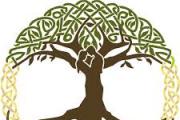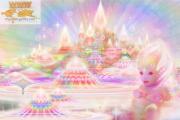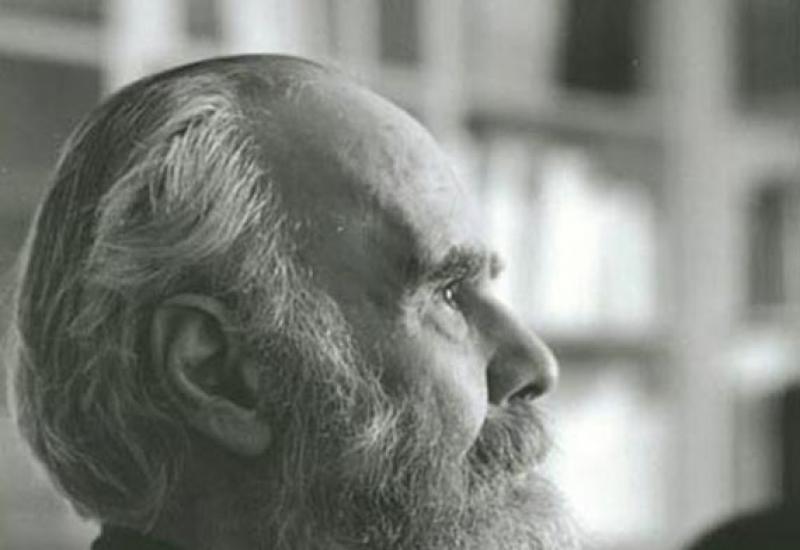They are the ones who are responsible for human destiny. What we resist becomes our destiny. Any accident is an unknown pattern
I have been tormented by a question for a long time: “Does a person have destiny, karma, or do we create it ourselves with our thoughts and actions?”
In search of an answer, I read a lot of books and information on the Internet, and any conversation on this topic still arouses keen interest in me.
Why?
After all, if a person has a destiny, then his meaning in life will be to live it. How will he know that this is his destiny? And suddenly, he is destined for complete misfortune, can he really do nothing to rewrite this board with his karma? ABOUT! - Another question! - Where is the information describing the fates of all people stored, and who tracks them?
If a person does not have a destiny, and he creates it himself with his thoughts, deeds, actions, then why do some people succeed, while others, no matter what they undertake, everything comes to naught (“apparently their mother gave birth on Monday...) ? And where do we get these thoughts, rash actions, bad habits and bad states, if we ourselves can build and change everything?
There are actually more questions. If you think about it seriously, then even more of them appear, accumulating like a snowball, and capturing values and meaning of human life, his activities, happiness, life and death, love...

Bad karma, damage and the stars are not aligned
There are people who are unlucky in life. Whatever they undertake is doomed to failure. They get up, seem to be trying to move on, and again end up in some kind of story, with the end of the undertaking ending negatively. Did the person or his relatives deserve this in past lives? Mystically...After all, a person doesn’t sit on the couch all day long, but tries, takes active steps, puts in effort, what’s wrong? His habits are not correct, does he act incorrectly? So how should it be? Who teaches? And if you can learn how to do everything “right” and “correct”, then where is the karma? So it can be changed?...
Where do thoughts come from? From the subconscious. What are actions? - a consequence of our thoughts and desires (often not consciously realized by the mind). Then the fate of a person is in the subconscious. If you know how to look into the unconscious and cognize it, then you can change karma. Right?

Let's take a look into the subconscious?
They didn’t leave a hole in our subconscious. But all philosophers, thinkers, psychologists and psychics, criminologists, investigators, fortune tellers, husbands, wives, neighbors, colleagues... are trying to understand the thoughts of another person, to look into his unconscious. But how? What if we don’t understand ourselves, and live by some programs and mechanisms that are embedded within us?Each person has their own values and meaning of life. Your thoughts, your perception of reality, your destiny, your karma. Why?
I found most of the answers to my “Whys” by looking into the subconscious using system-vector psychology. Eight vectors that make up our mentality in different combinations. Eight types of temperament, and rules for mixing them. By understanding and systematically adding up vectorial features, correlating them with the conditions for the development of vectors before a person’s puberty, and the conditions for the implementation of vectorial properties in adulthood, we get a picture of the subconscious person, which forms thoughts, desires, and finds ways to realize them in life.

Are vectors destiny?
Born with a certain vector set, a person is endowed with individual qualities and properties from birth. He cannot change or add his vectors, therefore, we can say that it is his fate to live with these mental and physical characteristics.Vector properties and qualities develop until puberty (adolescence 12-14 years). If before this time the conditions of life, upbringing, and education help the child to develop precisely in his own properties, he has a greater chance of realizing himself in life, finding his best destiny and being happy. If not, then the properties and qualities remain in an underdeveloped state, which forces a person to live a less successful life scenario.
As one of the worst options, as a result of incorrect upbringing and development, a person has formed a negative life scenario (for example, in the skin vector, a scenario for failure, or a victimological complex in the cutaneous-visual ligament, a suicidal complex in the urethral-sound ligament, or manic in the sense of smell , and etc.)
That is, it does not depend on a person what vectors he was born with and in what family. From birth, he is endowed with his own characteristics and properties, desires embedded in vectors. His parents, their vectorial characteristics, their views on life and upbringing, their living conditions are also factors independent of a person that set the tone of his life. We are unable to change these factors.

What gives us “bad karma”?
So if everything with which we come into this life does not depend on us, then what then depends on us in general? Or maybe something is really destined for us, and we are powerless to change anything?After puberty, a person needs to “take his destiny,” that is, to realize himself, according to his vectorial characteristics in the development in which they exist, in order to be happy and satisfied.
Often a person finds himself captive of “false desires,” that is, desires imposed by society, stereotypes, standards, replacing their own with them. We do not and cannot know our unconscious properties and desires. Fortunately, some people manage to find fulfillment according to their inner qualities. But how often do we find ourselves disoriented in this life and chasing chimeras of generally accepted values, which obviously cannot make us happy...
It happens that a person, as they say, has excellent starting positions, naturally has great potential, has many abilities, inclinations and desires, and has an excellent family. But! In affluence and the absence of an incentive to move, a person “refuses” to make any effort, sits and rationalizes his “doing nothing” with anything but reality.
And it happens the other way around, a person is born into a poor family, difficult circumstances, but great desire and perseverance allows him to develop his natural qualities, helps him overcome many difficulties and take “his destiny”, finding himself a worthy realization and fulfillment of his desires!
We often rationalize such cases with “talent will always find its way” or similar statements. In fact, whatever the initial conditions in life, what helps you “take your destiny” is, first of all, a passionate desire to do what you love. And the most important condition is to know who you are and what you really want.
That is, here we can already change our destiny! We can strive, achieve our desires, do everything possible for this. To go where our interests and desires are, and not where our parents send us or it is generally believed that it is “coated with honey.”
Thus, we cannot change our vectors and the conditions in which we were born, but understanding our psyche is a real tool to consciously approach fate, and not rely on something from above...

How to improve a child's fate?
When I talk about fate here, I mean vectorial development and implementation.If an adult can only understand and realize their qualities and properties, already in the state of development that they received, then a child can develop them. By developing and raising a child, according to his natural predispositions, parents build his destiny happy, increasing the chances of successfully finding his “place in the sun.”
We perceive other people through ourselves. We say: “When I was little, I really wanted a dog, but all you have to do is play on the computer...”, or “You’ll go to art school, I’ve always dreamed of this, but somehow it didn’t work out for me, but You have your whole life ahead of you..."
In general, parents try to impose their unfulfilled or realized desires on their child. But it is not at all necessary that the child will be endowed with the same vectors as his parents. He has a different karma (vector set). And his parents are trying to give him theirs. What comes out of this? - Only an unhappy, undeveloped, unfulfilled person in society.

How to improve the fate of an adult?
An adult, in order to improve his destiny (life scenario), to understand his desires and species role in society, needs to look into his subconscious. By determining your vector set, your degree of development of vectors, your desires, understanding your abilities and capabilities, you can significantly correct your internal states and receive a real tool in order to learn how to receive more satisfaction from life, not less.Of course, by realizing our nature, we cannot completely change all the mechanisms and reactions laid down in childhood, received from parents and the environment, but we are able to make adjustments to the life scenario, which was previously unconscious and unfolded in a way incomprehensible to us. Sometimes, just awareness of your nature can turn your life in a different direction, save you from many troubles and disappointments...
There is no evil fate above us, no unchangeable bitter destinies and no cross placed on life. We have much more in our hands than we can even imagine. The key to everything is to understand yourself and live your life consciously.

There are two opinions regarding the fate of man:
Fate is destined for us from above; you cannot escape from fate.
Your destiny is in your hands, you determine your own destiny.
It is impossible to prove or disprove this or that statement. You can find out which opinion is more popular - but this does not answer which of them is closer to the truth. Therefore, instead of asking the question: is my future determined or not, it is better to ask the question: how would I like my fate to be determined in advance, or could it be chosen?
If I knew for sure that a happy life was written in my destiny, I would not try to change it.
If I knew for sure that my destiny was loss, grief and sadness, I would want to change my destiny.
In any case, I would strive for a happy life...
One of the eastern parables tells how one day a servant ran to his master and, shaking with excitement and fear, asked to be allowed to go to Baghdad for a couple of weeks. When the master asked what had happened, the servant replied that he saw death at the market, shaking its finger at him. The gentleman, of course, let him go, and he quickly left. The next day, the gentleman himself met death at the market and was not afraid to ask why it frightened his subject so much. “Scared? - she was surprised, “I just wanted to remind him that tomorrow I’m waiting for him in Baghdad.”
“A person, when in trouble, is accustomed to blaming fate for everything. And he’s unreasonable and doesn’t want to see his own mistakes.” Hitopadesha
Fate is a developing course of events, a coincidence of circumstances. According to superstitious beliefs, it is a force that predetermines everything that happens in life, fate, fate. There are other synonyms: fate, share, life path. There is an opinion that fate cannot be changed. It is this point of view that is used by many philosophical and religious teachings.
But there are other opinions. In ancient times they said: “Every person’s destiny is created by his morals.” “There are no accidents in fate; a person creates rather than meets his destiny,” wrote L.N. Tolstoy. “If you sow an action, you will reap a habit; if you sow a habit, you will reap a character; if you sow a character, you will reap a destiny.” What is this saying about? What is the action, habit, character and destiny of a person?
An action can be understood as a person’s action, together with the result of this action and its moral assessment. The division into negative and positive categories occurs precisely in moral terms and may not coincide with the “usefulness” (in the generally accepted sense) of the achieved result. Thus, in the process of transferring experience from parents to children, violence is often allowed. The result can be achieved, but its moral side will be negative, since the child will remember that through violence against another person you can teach him something. And over time, the position is established that violence can solve any problems, tasks, including social, material, management, etc.
This leads to a chain of errors, which are usually passed on from generation to generation through upbringing and communication. The moral assessment of an action speaks of its consequences - whether it brings benefit or harm to someone. The action also has a corresponding impact on the life of the one who committed it. But the harm of even serious mistakes can be corrected if they are detected in time. Errors that are not detected in time lead to those events that people then attribute to “unlucky fate.”
 Repeatedly committing the same act leads to the formation of the habit of acting in such conditions exactly this way and not otherwise. Everyone knows about bad habits. But are there “good” habits? Perhaps they could exist if life stood still. Then a person, like a wind-up toy, would have to mechanically perform the same actions, following the rules learned once and for all.
Repeatedly committing the same act leads to the formation of the habit of acting in such conditions exactly this way and not otherwise. Everyone knows about bad habits. But are there “good” habits? Perhaps they could exist if life stood still. Then a person, like a wind-up toy, would have to mechanically perform the same actions, following the rules learned once and for all.
Often a habit is associated with linking a person’s actions or state to some external factors. These factors make up the walls of the microcosm in which his life passes. Harm from habits can only be noticed when the addictive factors disappear or change. They shifted the necessary things, turned off the water or electricity, did not deliver bread to the store on time, blocked the usual route to work - and negative reactions are triggered, from irritation and dissatisfaction to complete confusion and panic. At the same time, participants in the situation tend to look for those to blame - from neighbors and family members to the authorities, instead of looking for a way out.
Habits are convenient for their “owner”; they allow one not to think, relying on what he is used to, but they also quietly lead a person into a trap. It would seem that following habits “makes life easier”, but at the same time it slows down development. Finding himself in unusual circumstances, a person experiences difficulties in solving non-trivial problems. Namely, when solving such problems, abilities are revealed.
The entire set of actions, abilities, skills and habits of a person is part of his character. Character traits are individual habits and positive skills. If actions are performed consciously, i.e. a person can explain why he did this, then they form the beliefs that guide him in life.
Astrologers believe that everything, including a person’s future character, is determined by the position of the stars at the time and place of his birth, and astrological forecasts are based on this. Is it so? The roots of astrology lie in ancient times, when people considered the constellations as gods that could control their lives and worshiped them. In fact, it is not fate that unambiguously determines a person’s character, but character that shapes what can be called fate.
Many people wonder why everything in my life is the way it is. Why do I have this particular family, job, friends? Where did all this come from? Of course, we chose it ourselves. A choice is an action or a chain of actions. For example: a young man attends a dance, becomes a member of a certain company, he likes a girl, he dates her and finally gets married. Every action is not only serious steps, but even the smallest detail: where to go, what to wear, who to talk to - a decision made.
Any decision is not made by a person by chance - decisions are based on a value system. Values include what a person considers good. In his choice, a person most often leans toward what he is attracted to, likes, or what he considers his duty. Thus, there is a direct relationship between a person’s value system and his life “lot” - consciously or unconsciously, a person throughout his life seeks and finds what he considers valuable. The value system itself is a product of education and information perceived by a person throughout his life. If values are questionable, then both the path to them and their achievement will not bring anything good to a person.
What if others make decisions for a person? For example, parents or someone authoritative advised me to go to university, get married, or get a certain job. In fact, in this case too, he chooses himself whether to listen to advice or not. This is the choice of people with an unstable value system, who themselves do not know what they want. If a person no longer wants to live in “someone else’s mind” and decides to think independently, then he will refuse an unreasonable choice, but will choose the right one that does not cause harm, perhaps he will find benefit in what he already has (work, study, etc.) .
 So, decisions made play a key role in shaping the conditions and events of a person’s life. And they are the ones who are able to change these conditions in the right direction. For example: having once deceived, a person is forced to either continue to lie in order to confirm what was said earlier, or admit to deception. If he has the determination to confess everything without fear of condemnation and punishment, the situation will improve. If not, the lie will continue, sucking you in like a swamp. Making the right decision in a timely manner can turn a person’s whole life around. Sometimes this change occurs immediately, sometimes gradually: views, goals, beliefs change - life changes.
So, decisions made play a key role in shaping the conditions and events of a person’s life. And they are the ones who are able to change these conditions in the right direction. For example: having once deceived, a person is forced to either continue to lie in order to confirm what was said earlier, or admit to deception. If he has the determination to confess everything without fear of condemnation and punishment, the situation will improve. If not, the lie will continue, sucking you in like a swamp. Making the right decision in a timely manner can turn a person’s whole life around. Sometimes this change occurs immediately, sometimes gradually: views, goals, beliefs change - life changes.
An important role in this change is played by the ability of the human intellect to distinguish: necessary from unnecessary, true from false, benefit and creativity from harm and destruction. Basic moral values are embedded in a person’s mind from childhood; all that remains is to use this information to evaluate one’s own actions. The ability for adequate self-esteem allows you to adjust your value system at any stage of life, and, in accordance with this correction, replan your daily activities. The ability to timely implement these plans into action is also important. A person with a developed ability to adjust his actions can flexibly manage life, like a professional driver, “steering out” of life’s adversity. Note that no one can perform such an adjustment except the person himself. Regular review of one’s actions and views and correction of mistakes allows a person to “put things in order” in his life, leading to a gradual move away from shortcomings and the formation of positive character traits. Of course, the effort and time that this will require depends on the degree of “mess,” however, such a possibility is always there.
Often, a tendency to various attitudes and superstitions interferes with managing life. If you find yourself in some kind of trouble, without considering its causes, you can become convinced that this will always happen. When a person thinks: “I am a failure - this is my destiny,” he thereby refuses to show his abilities. He begins to turn a blind eye to his mistakes: “What’s the point of trying, you still can’t fix anything.” It would not be surprising if his failures were repeated. And this will only strengthen his opinion of himself. About the same thing happens when a person “gets used” to troubles and does not look for ways out of them.
 “This is my cross,” the woman thinks about her drinking husband. But in fact, any problem has its own reasons, which can be discovered by analyzing the events that preceded it. The cause of the problem may be a wrong choice at certain points in life, or a negative attitude towards someone or something. If a person’s life has reached a dead end, it means that he needs to mentally return back to the place from which he “got lost” and continue moving forward without repeating past mistakes.
“This is my cross,” the woman thinks about her drinking husband. But in fact, any problem has its own reasons, which can be discovered by analyzing the events that preceded it. The cause of the problem may be a wrong choice at certain points in life, or a negative attitude towards someone or something. If a person’s life has reached a dead end, it means that he needs to mentally return back to the place from which he “got lost” and continue moving forward without repeating past mistakes.
Thus, self-education allows a person to become a full master of his life. What character traits a person cultivates in himself, these are the results he will achieve in life. To do this, it is necessary and sufficient to be honest with yourself - not to build illusions about yourself, not to make excuses, not to look for those to blame, to consciously and independently make decisions and put them into action.
How to stop stepping on a rake:
1. First of all, try to become aware of your own “programs”. What recurring life events haunt you? In what areas of life are you constantly “unlucky”? Make a list of all the failed romances or job quits and try to understand what they all have in common. Try to be as objective and specific as possible - instead of “all men are unscrupulous scoundrels,” write “they cheated on me, but I didn’t know anything.”
2. Think about whether this is similar to situations from your childhood? For example, an overly demanding boss may be - or seem to you - very similar to your own father, and your resentment and desire to “rebel” may exactly repeat the feelings you experienced in childhood. Often this awareness alone is enough to change the perception of the situation.
3. Figure out how you yourself unconsciously provoke such events? Understand what your own actions led to such a turn of fate. “If you always do what you have always done, you will always get what you have always gotten,” says the psychological axiom. So try to do something fundamentally new - at least as an experiment.
4. Make your own “set of rules” - a list of situations and actions that you need to avoid. For example, if you are plagued by conflicts with your superiors at work, remember this and do not try to “seek justice.” If your strong point is indifferent men, try not to get close to those who demonstrate their own indifference and independence - do not hope to change him with your love and attention. In a word, avoid any approach to anything that promises a repetition of your negative program.
5. Understand what you are striving for. Often our lives are controlled by external events and circumstances only because we do not take the trouble to manage it ourselves. “If you don't have your own desires, your life will be controlled by the desires of others,” someone said. It’s the same with fate - the less you yourself understand what you are striving for and where you want to move, the more you will be controlled by those very “programs” of Lame Fate, embedded since childhood. Therefore, realize what you would like instead of those situations that you would like to correct. Visualize your desired outcome in detail. And believe me, everything will definitely be like this.
So does our future depend on us?
Even if the events of our lives are determined, we can choose the way they will happen. With our thoughts and actions we can bring events closer and further away.
This phrase became the main idea of James Allen's immortal and often quoted book, Thinking Man.
So how can you change your destiny for the better? It's up to you to decide. Just make sure you know what kind of destiny you want to have. Act according to your conscience and let life bring you pleasant surprises.
Henry David Thoreau noted:
I don’t know anything more inspiring in life than the undeniable ability of a person to elevate his life through conscious efforts.
Hello, friends! A very important question from Irina and many other readers: Tell me, is a person’s fate 100% predetermined, or does a person decide his own destiny? Is it possible to change something in your destiny, change your destiny completely, or is it impossible? Thank you in advance!
At one time, when I was 17-18 years old, I was incredibly interested in this question, and then I could not find clear answers anywhere. I rushed to extremes, reading the esoteric and spiritual literature of various authors, now into fatalism, now into the theory of absolute control, etc. Then I could not even imagine that the Laws of Fate brilliantly consider opposites and there is no need to rush to extremes, which, as always, only lead to restrictions and suffering.
In fact, in order to understand the predetermination of fate, you must first understand what Fate is and how it is formed, to delve into the mechanisms and work of the laws of fate. You can read the articles about Destiny below:
Now we answer the questions in the article.
Is a person's destiny predetermined or not? Reader Questions
Answer: Fate is largely predetermined, but almost everything in it can be changed, possible troubles and misfortunes can be prevented, and new favorable opportunities can be revealed and created.
Despite the fact that fate is laid down and planned by the Higher Powers (Karma) even before the birth of a person, the expression “Man himself decides his own Destiny” is absolutely true and fair. Why?
On the one hand, the Higher Powers, together with the Soul of a person, before its incarnation, plan his Karmic Tasks for life (goals), the lessons that he must go through in order to learn what is necessary, the sins that he must realize and atone for, and even the punishments that he is obliged to been through.
On the other hand, every person has freedom of choice - how exactly a person realizes his destiny: he will accept his destiny and his tasks or not, he will learn and strive to raise his destiny to the next level, improve it, or he will go downhill, he will want to receive special knowledge (esoteric) to prevent possible troubles and remove punishments in a different way, or he will take all the blows with his own skin, without trying to change anything for the better.
Everything depends on the person himself - on his attitude, his beliefs, decisions and actions.
I repeat, there is such a wise saying that reflects the essence of Spiritual Laws in relation to man - “A misfortune that has not yet occurred must be prevented.”
That is, almost any trouble, punishment, misfortune that a person faces by fate can be prevented, and should be prevented, especially if you know that something bad can happen. After all, you received this knowledge for a reason. And the Higher Powers do not need a person to suffer and experience tragedies and hardships, not at all! They need a person to be open to Them, to a new understanding of life and its Laws, so that he develops and changes for the better, so that he realizes his past mistakes and does not repeat them, where necessary, making appropriate apologies.
Therefore, those people who work on themselves, develop, change, are interested in their future and what the Higher Powers want from them - such people can radically improve their destiny, and even, having fulfilled certain conditions, receive a new destiny. In esotericism this is called “Change of Destiny.”
And those who do not want to hear anything about the Higher Powers and Their Laws, who do not want to take responsibility for themselves and their destiny, responsibility for their own development, changing themselves for the better, have to feel all the blows of fate on their own skin.
But there are things that a person cannot cancel in his destiny, such as Karmic Tasks. For example, it is determined by fate that a person must be President, that means he must become President and nothing else. A karmic task cannot be canceled, it can only be replaced with a higher one, and even then not always. After all, on Earth, in Society, something must be created, implemented, accomplished by someone, for the evolution of this very society.
Here is an example of 50/50. Karmic tasks also include atonement for past sins. And how to close your sin is everyone’s choice. Working off sin can happen through illness, through other hardships due to fate, or, if a person develops, simply through awareness and repentance. Those people who, having found themselves in a hopeless situation by fate, do not give up, but begin to look for answers, reasons, often find them precisely thanks to development and Spiritual Healing. It is a good Spiritual Healer who helps a person understand those truths of the reason (karmic reasons) why he got into trouble or got sick. And through development and work on oneself, working with one’s beliefs and qualities, a person removes all the negative reasons that led to certain punishments according to fate.
What do you think, Evgeny, is a person’s fate predetermined, or does a person determine it himself?
Of course, everything that happens is predetermined, and a person has no control over what happens. A person is a set of movements occurring in the impersonal Consciousness, and what movements will be created in a person, what actions will flow through him, are influenced by all the movements existing in the manifested Consciousness.
In other words, absolutely all human actions are influenced by everything that happens in nature, including in the human environment, actions and phenomena. A person cannot do anything on his own without the influence of the forces of nature on him. They are the ones who cause certain actions in him. The influence of the forces of nature on a person manifests itself in him in the form of thoughts, feelings, impressions, desires, motor and emotional reactions and actions performed by a person aimed at realizing these desires.
A person has no opportunity to change what happens to him. He has nowhere to take forces from except those that flow through him in certain directions, created by the Single Source of Life or the Single Consciousness.
Man is not an independent being with freedom to choose his actions. He is completely dependent on the entire existing World. All actions performed by a person are influenced by absolutely all natural phenomena: the force of gravity of the earth; location and relationship of stars and planets; natural conditions, including climatic conditions and weather conditions; Food; air; water; people and other living beings around a person; internal processes occurring in a person, including the work of all his internal organs; etc.
How can he determine his own destiny? His destiny is a set of actions he performs as a result of the influence on him of the One Life Force for all. He himself is a manifestation of this Power.
But, no matter what happens, you can be sure that what will be and should be, and this will be your destiny, which cannot be changed. Well, since it cannot be changed, then all that remains is to accept it and relax, observing its manifestations and accomplishments, calmly continuing to do your daily business.
Let what needs to happen happen. Treat everything that happens to you like watching the premiere of a new film. You don't know how the events of this film will develop, although you can assume something. You don't know which characters will appear in which episodes of this film. You also don’t know how this picture will end and when. But the main thing in watching a film is the viewing itself and the impressions that arise as a result of this viewing.
Different episodes of the film create different impressions in you and bring with them different sensations, sensory experiences and emotions. And it gives you a thrill to watch. And this makes you go to the cinema over and over again and watch more and more new films.
In real life, this is exactly what happens. The impersonal Consciousness, one for everything, manifests itself through everything that can be seen, heard, sensed and felt, and while observing all these manifestations, it experiences them in the form of various impressions received.
This can also be compared to sleep. You sleep and dream. This dream appears on its own, and you do not make it happen. It happens in you by itself, and exists only because you exist. And so, you sleep and see different dreams. Some of these dreams evoke pleasant and joyful feelings in you, some sad, some difficult, and some scary. But no matter what feelings and experiences dreams cause, they are all just experiences obtained as a result of viewing dreams and impressions.
Don't try to hold on to any of these impressions and don't try to hold on to any of the dreams you see. Accept everything that happens to you and observe it with an open mind, without any attachment to it. There will be many more different pictures and many different impressions, the ones that pass before you now are just one of them.
No one specifically determines the fate of a person; it is determined by itself in accordance with the Unified Law of the Unified Nature. One can only observe the manifestation of these laws by observing the manifestations of fate. And even this observation is one of the manifestations of the Unified Law of the Unified Nature.
For the life of me, I don’t like this approach. Actually, I can’t give any argument. And what you say is true, Zhen, but... I BELIEVE that man has both Freedom of Choice and Freedom of Will.
Why kill you? Well, you don’t like this approach and even if you don’t like it yourself, why should you like all approaches? You may well have your own approach, your own vision, and your own opinion, based on a different point of view. The world is one, but it can be perceived from different points of view. These points are called viewpoints. There are many points of view, therefore there are many appearances and opinions based on them.
So you say that you have nothing to argue with, but you believe that a person has both freedom of choice and free will. What is this faith of yours based on? What is this basis?
What I'm talking about is not the absolute truth. This is only a description in And deniya flowing through the body with the name Evgeniy Bagaev. This is just a pointer to what exists. There is no need to believe in this or that at all. You can pay attention to this. And if you have doubts about this, or it seems to you that you see it differently, then you can check it by observing what I am talking about. Then this will be your own experience, and this will be the most compelling argument for you, which will not require any confirmation.
So you think that a person, and therefore you, have freedom of choice and free will. This means that you can do something or not do something at will, and you have the opportunity to choose your way of life and way of action - how you should live and what you should do.
I suggest you do one exercise or, more precisely, make an observation that can lead you to exact knowledge of what is happening and how.
Try to observe all the actions you perform. Observe them to see how they are performed, who is their doer?
Start with those that you definitely consider to be yours, and then move on to everyone else. Moreover, while observing, try to immerse yourself inside the action itself and observe it from the outside.
Observe where the desire to perform this action came from? And do it exactly the way it happened. Where did the idea of doing it come from? Who created it and how? On what basis was this idea formed? How did the actions themselves occur or occur? How are they made? What exactly are you doing to achieve them? What do you do to accomplish these actions?
You can also observe where the strength to perform all these actions comes from, because without it no actions will be performed. And what are you doing to make this power appear and flow exactly the way it flows?
Then observe how your decisions are made. How do you take them? What do you do to get them accepted and accepted exactly as they are. What influences all your decisions? And where do all these influences come from?
When you observe all this activity, then also observe what you do in order to live. What do you do to eat? What do you do to drink? What do you do to breathe? What do you do to get moving? What are you doing to ensure that all your internal organs and all the processes occurring in your body occur exactly as they occur? How exactly do you do all this? How do you tie all their work together? And how then do you use their activities to complete all your affairs, since all your affairs directly depend on this activity?
What is fate? Each of us asked this question - reflected, analyzed, tried to come to some conclusion... I wanted to understand for myself what HIS own destiny represents for him, whether those events that occur on the path of life are destined from birth or are they just a question of choice? But various events, sometimes of an inexplicable nature, one way or another led us astray from a specific personal understanding of the issue of fate and forced us to reconsider our attitude to many things...
So does it exist? Does it include the concept of the meaning of life? Or is this very meaning of life a synonym for the word “fate”? Alas, no one can answer this question with certainty. People live, get on well... And everything is fine with them. And then, out of the blue, some event happens (joyful or sad - it doesn’t matter), which unsettles you and gives you reason to think about your life and destiny. Was this destined? Am I to blame for what happened? Or am I lucky? And if I am lucky, can this be considered as an integral part of only my personal destiny? After all, all people are different. What exists and happens in one person is unlikely to be repeated with accuracy in another.
Nothing just happens?
It can be assumed that each person’s concept of fate is based on his specific faith. Faith in God, in the universe, in something else - it can be called differently. This man believes that fate as such, it is that all the sorrows and joys sent to him from above are inevitable, he takes everything for granted... It turns out that he is going with the flow? Then we can conclude that such a person does not develop, although, on the other hand, one might think that “everything that does not kill us only makes us stronger.”
“Nothing in life just happens... This is destined for us by fate... So so be it... Isn’t it too primitive and one-sided? - says the psychologist Svetlana Stasyukevich. “Only a weak person can think like that.” After all, if you perceive everything that happens around you so passively, then why live? Everything that happens in the life of every person is only the creation of his hands. It is undeniable that there is a higher power, God, but it is unlikely that he “makes” people losers and darlings of fate. Fate? Rock? In my opinion, these are just words that, apparently, were invented by a person who simply wanted to justify the failures in his life.”
Make your own happiness?
So, one such “swimming with the flow” in this very current may constantly be lucky, but another – not. This is destiny? Or does a person who believes in fate, but completely disagrees with the trials that are sent to him from above, begin to fight for what he needs? And in the end, he can again believe that THIS is how fate tested his strength, that he had to not break in order to achieve his goal... So this was destined by fate? Is this disagreement? Struggle? Or is there still no fate, and a person is able to build his own life and become lucky? After all, remember how a man created from clay asked God: “Make me happiness,” and God, holding out his hands to him with the remaining piece of clay, said: “Make it yourself.”
Svetlana Stasyukevich: “Every person builds his own destiny, there is no other way. Often, it is easier for weak and unstable individuals to blame external circumstances for their failures, because this is easier than admitting the error of their actions. Only strong and confident people can fight for the desired object. Many people are attracted by the process itself, the algorithm of actions to achieve the goal, others - by the result, but both make a person strong, and, therefore, achieve the object of his goal. And it’s unlikely that a strong and self-confident person wants to think about the question “if only...”, “maybe...” or look for someone to blame for his failures.”
A question of choice?
Or maybe fate is what a person chooses for himself? For example, his dreams and aspirations? But why then does everything come true for one such “dreamer”, but for the other, no matter how much effort he makes, it doesn’t? This is destiny? Or is the second one not following his own branch of the probability of fate development? Do these branches even exist? For example, there are naturally talented people - they could have become famous artists, but they became successful businessmen. For some, this choice occurred consciously and immediately, while for others, it was under the influence of relatives. For example: they say, you, son, should follow in your parents’ footsteps and become an entrepreneur, continue the family business, and your songs, dances, etc. - this is not serious.
But... if a person subsequently changes his mind and begins to do what he likes best, where and what then is fate? In parental influence and sincere conviction that THIS will be better for their child (then a person compromises with himself out of respect for elders and, sometimes, loses years of his life that he could devote to his favorite business) or in a conscious choice, When do informed decisions cease to be so?
Svetlana Stasyukevich: « Dreams and a person’s aspirations are the “engines” of personal development. And they come true not because a person simply wants something very much, he does everything possible to realize them. There is no other option. Each person is individual, each is remarkable in some way, the only problem is that many ruin their abilities and become ordinary office workers, when they have all the prerequisites to become chefs or showmen. By consciously choosing what we really want to do, we do not carry out parental introjects, do not follow their professional preferences and do not program ourselves to repeat someone else’s life scenario, which means we live our own individual and interesting life. And this is the merit of our hands alone.”
What about deja vu?
Is it fate that everything you wanted and dreamed about constantly reminds you of itself? deja vu and signs? When, finding yourself in a completely new situation, do you realize that you have already been in it or seen it in a dream? So this was supposed to happen in your life? So, fate still exists and this is how it tells you that you are on the right path?
My dad says that the fate of a person is in the hands of three people - God, a guardian angel and the person himself. And it is in this sequence that decisions are made and events are created...
What we have
Fate is a polysemantic term that means: destiny and its fulfillment, life path, coincidence and fate. But belief in fate contradicts the Divine Revelation on which Christianity is based. Saint John Chrysostom said that “the doctrine of fate was sown by the devil.”
Among the ancient pagans, fate is the incomprehensible predetermination of human events and actions. The fate of a pagan is fate. Man is a plaything of fate, a slave of circumstances. You cannot escape fate, you cannot change it, you can only submit to it.
And in science, the role of fate is played by causal determination, i.e. causality. There is no fate as fate, but there are natural laws of the physical world that cannot be changed, the action of which cannot be escaped.
In contrast to the indicated options for fate, in religious consciousness there is the concept of fate as a teleological determination, i.e. providence. It is not blind fate, not impersonal physical laws, but the creator who controls human life.
What do respondents think?
Alexander Bondarev, system administrator: “I view fate as a task that is set by something or someone otherworldly. This is some kind of curved line that was destined for you from the very beginning. You can't escape fate. And if it doesn’t exist, then we live according to human laws, therefore, we build it for ourselves. Many people live and do not think about questions of fate, and when they are “covered”, they begin to believe in it...”














